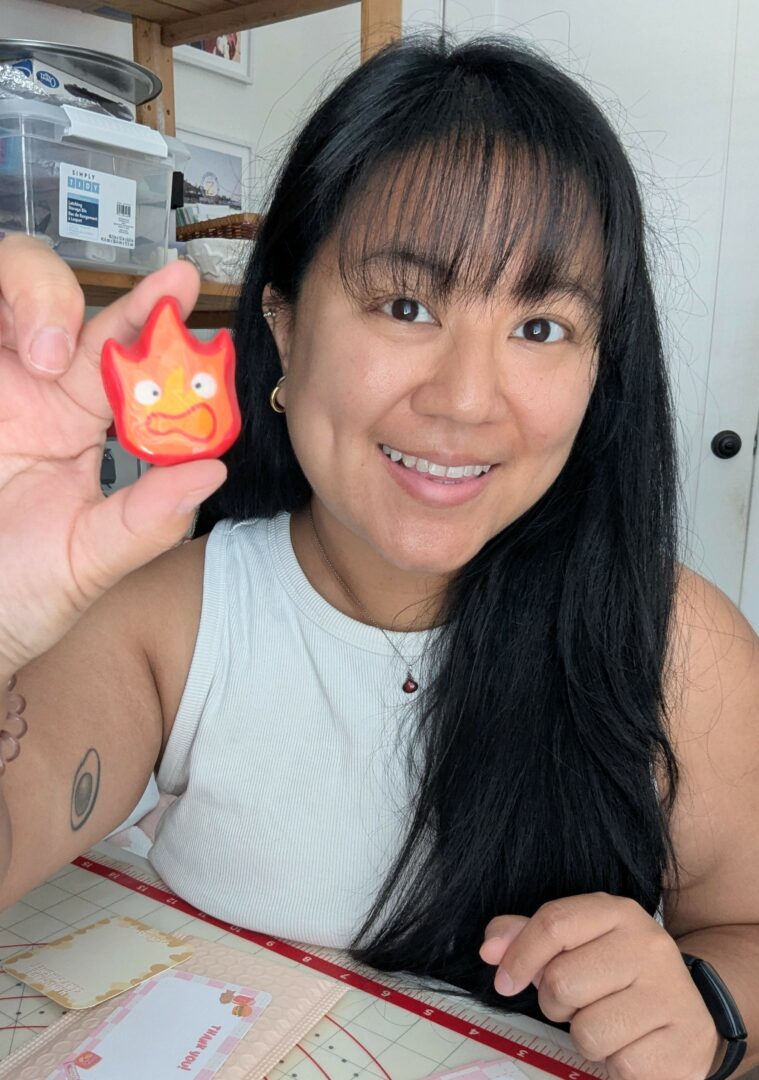Alright – so today we’ve got the honor of introducing you to Tori Kanhayuwa. We think you’ll enjoy our conversation, we’ve shared it below.
Hi Tori , thank you so much for opening up with us about some important, but sometimes personal topics. One that really matters to us is overcoming Imposter Syndrome because we’ve seen how so many people are held back in life because of this and so we’d really appreciate hearing about how you overcame Imposter Syndrome.
I don’t know that there is a complete ‘overcoming of imposter syndrome’ if I’m being honest. As an emerging artist who didn’t go to art school and only started my art journey a few years ago, it’s really about continuously growing and allowing that growth to combat the episodes of imposter syndrome you’ll inevitably face. It’s almost like as you grow and achieve new goals, you’re counteracting the imposter syndrome effect. Hopefully one day, it’ll be less about counteracting the effect and it’ll be completely replaced by confidence.
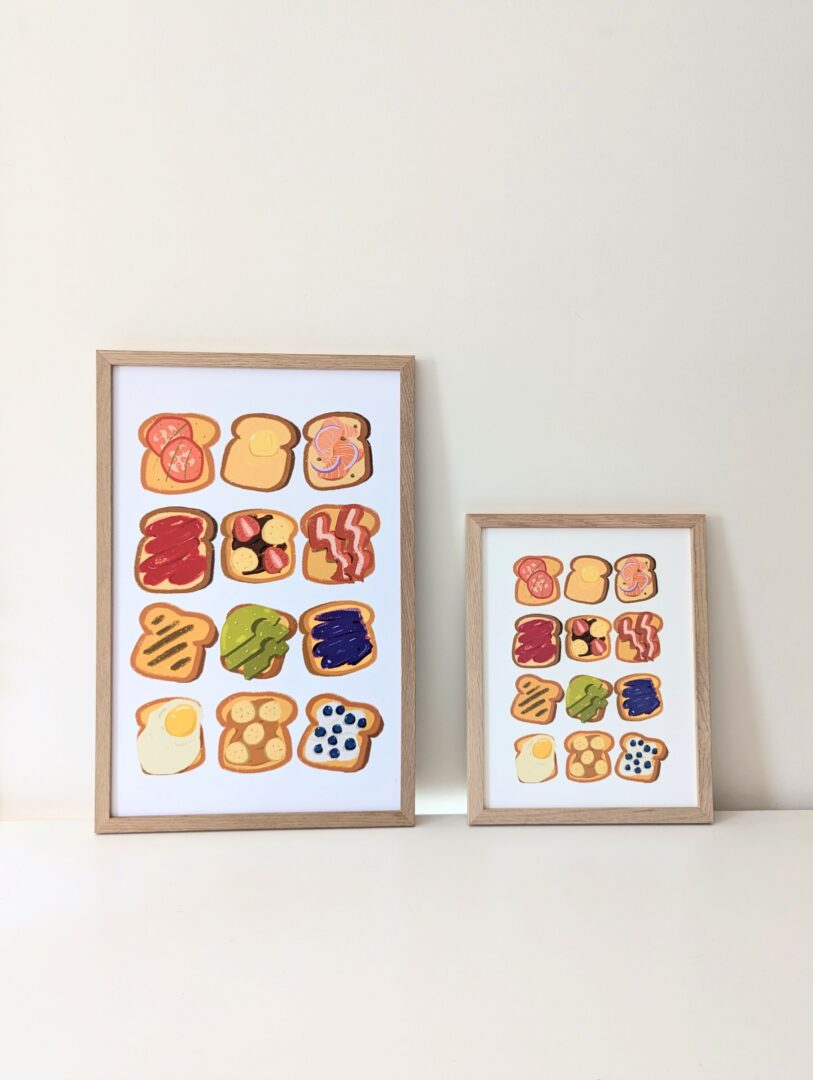
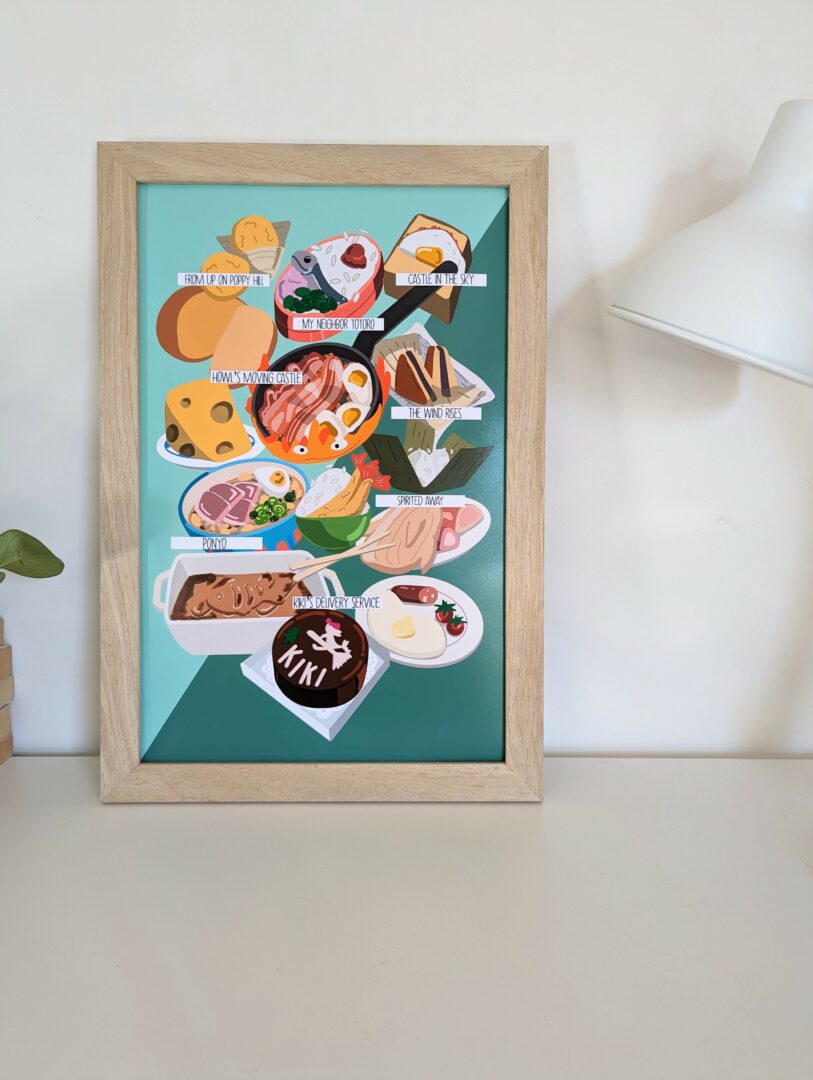
Great, so let’s take a few minutes and cover your story. What should folks know about you and what you do?
My name is Tori, I’m the artist and maker behind Tori Drew It, a handmade art business that offers art prints, stickers, handmade magnets, and a Doodle-Booth. While I was born and raised in the Los Angeles area, my parents immigrated from Thailand. Being Thai-American is a core part of my identity, but as my relationship with my identity, mother country, and overall community fluctuate over time, a constant is the larger Asian-American community of restaurants, food stalls, and snacks available in the Greater Los Angeles region. Things like boba, 99 ranch, mochi, became integral parts of my experience, but none are inherently Thai. So much of my art reflects this larger experience that many disaporic Asians would find comfort in. Experiences that we’ve come to share together outside of our mother countries, but were not originally our own. My art focuses on elements of nostalgia, belonging, and joy. When you see my magnets or stickers, you chuckle and laugh at how relatable it is or how it reflects your own childhood. You get excited that there are art prints that reflect your own kitchen pantry items or favorite snacks.
Currently the shop offers art prints in various sizes, vinyl stickers, and handmade magnets. I’ve recently launched a Doodle-Booth, a photobooth where the artist draws you into a photostrip instead of a camera. This has been an exciting expansion and a personalized touch customers enjoy. Customers can also hire the Doodle-booth for private events like weddings and corporate events. The latest installment to Tori Drew It are seasonal workshops where I’ll be teaching folks how to make their own felt ornaments at Meltrose Trading Post in December.
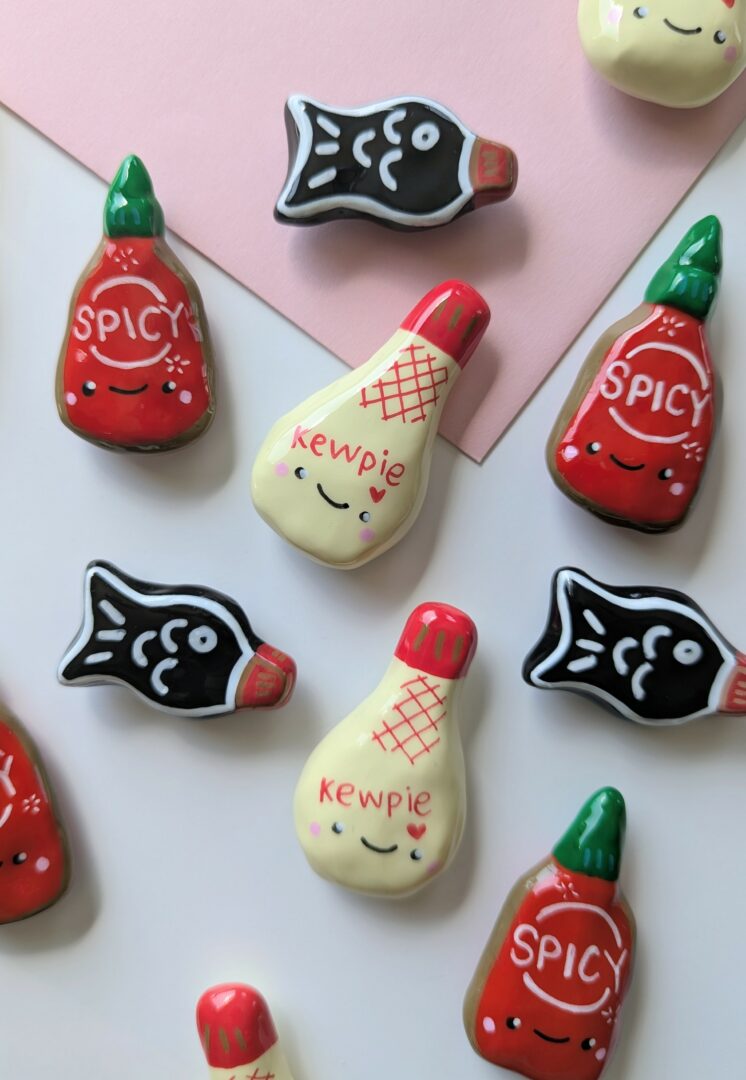
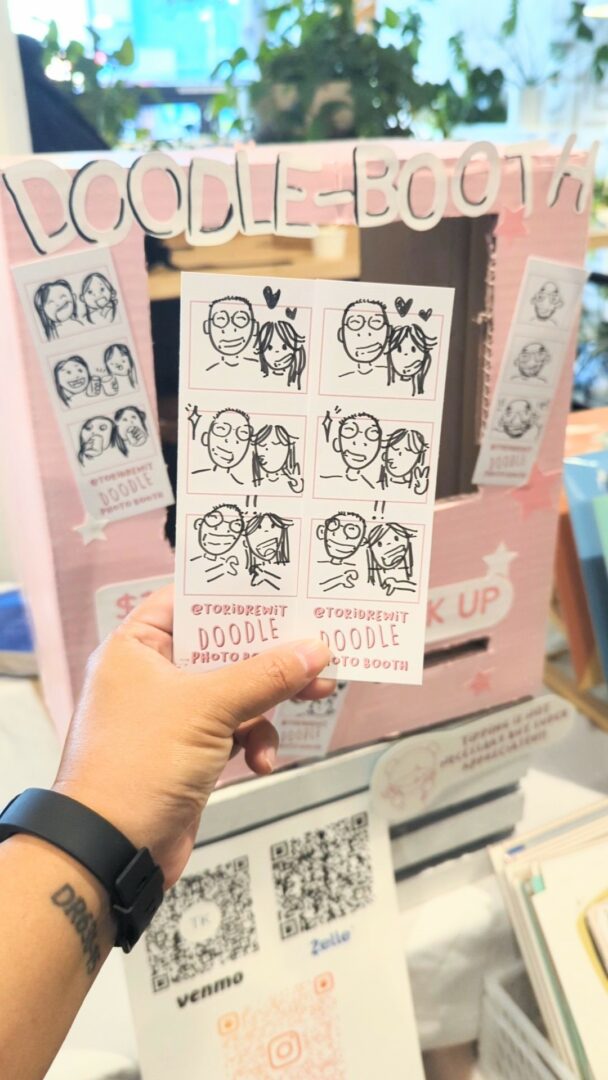
There is so much advice out there about all the different skills and qualities folks need to develop in order to succeed in today’s highly competitive environment and often it can feel overwhelming. So, if we had to break it down to just the three that matter most, which three skills or qualities would you focus on?
1. Learning the balance between business trends and authenticity: I’ve seen businesses operate on both extremes- one will only chase fads and trends and another will only put out what they believe is authentic to their brand. It’s easy to chase trends and lose your brand in the process. It’s also easy to shutdown consumer feedback and only try and sell what you think is authentic and ‘pure’ to your brand. The secret is in finding the balance between the two. Being able to sell something that you’re proud of and is your original design, but also meets consumer demands. For example, you might start off selling art prints like myself. Only a small percent of people are interested in this one use of your product – an art print to decorate their spaces- but if you expand your art to other products like stickers, apparel, and totes- you’ll expand capacity to fulfill different types of consumer needs thereby expanding your services and balancing the two philosophies.
2. Ability to execute quickly: I think I’ve been successful so far because I’ve jumped on every opportunity that has come my way. I don’t sit on it and wait for something to be ‘perfect’ before I pursue it. I pursue and perfect along the way. If you waited until you were mentally prepared for something or your product was 100% perfect you’d be waiting for forever. I know people who intimidate themselves with the possibilities of something going wrong before they even start something, before they even give themselves a chance to succeed in it. Ignore those thoughts. If you fail, it’s a great lesson to learn from. But if you never go for something, you’ll always be left wondering and no lessons learned. Opportunities don’t always come twice. Act quickly. Have a tolerance for failure and feedback. Re-iterate until successful.
3. Do-It-Yourself goes beyond crafts, it becomes a philosophy. At some point DIY becomes teaching yourself whatever you don’t know related to your business. If you don’t know how to handle permits, licenses, etc you’re going to figure it out yourself. When you open your own shop, no one is there to give you a handbook or handhold you through a process. You’re basically on your own to teach yourself new systems, processes, and techniques. This mentality will cover you 80% of the time. The other 20% you’ll have to recognize when something is completely beyond your capacity to learn for yourself or is worth your time to do so. When this happens, recognize it quickly and hire help.
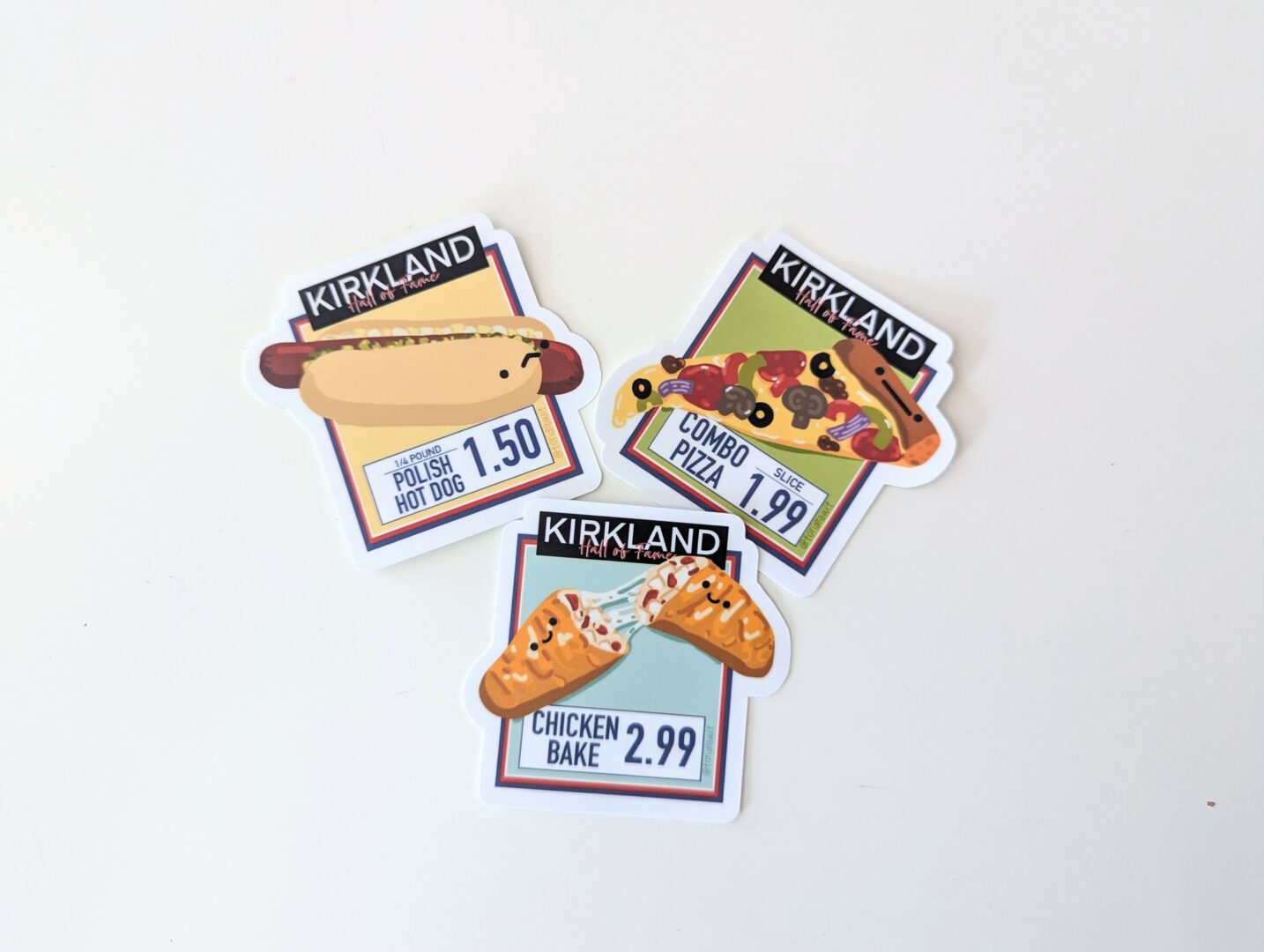
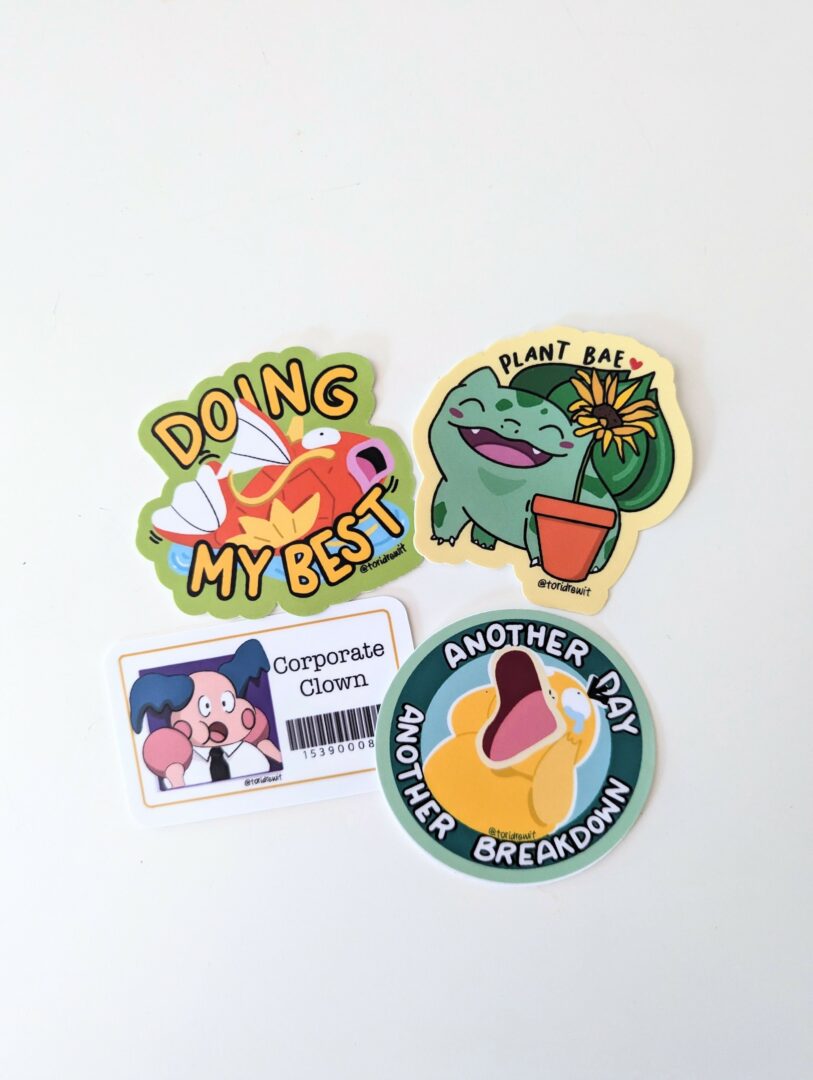
Is there a particular challenge you are currently facing?
PRODUCTION.
And by that I mean that my entire inventory for my art business is made in-house and I have a wide variety of products AND designs within those products that it has become a hindrance to continue to do everything in-house. I design, print, package, frame all 30-something art design prints in 3 sizes. I design, print, cut all of the 20-something sticker designs I have. I hand-make about 50 clay magnets weekly. All of this just to be stocked for pop-up markets. I don’t entertain consignment, wholesale, or commissioned projects right now solely because I can barely keep up with production for pop-up markets alone (about 4-10 pop-ups monthly). As you can tell, my focus on in-house production has limited the growth of my business in other areas.
I’ve resolved to begin outsourcing and discontinuing certain items. Starting out I was afraid of wasting money on products that wouldn’t sell, but now that I’ve experimented so much the past 2 years, I have more confidence in the types of products and styles I should focus on. Additionally, consumers love volume and variety. The more volume and variety you have, the more likely you are to meet the consumer’s needs. I’d like to expand to other product types and still be able to hand-make certain items, but this means discontinuing certain items that aren’t selling as well first.
Contact Info:
- Website: https://www.etsy.com/shop/ToriDrewIt?ref=seller-platform-mcnav
- Instagram: https://www.instagram.com/toridrewit/?hl=en
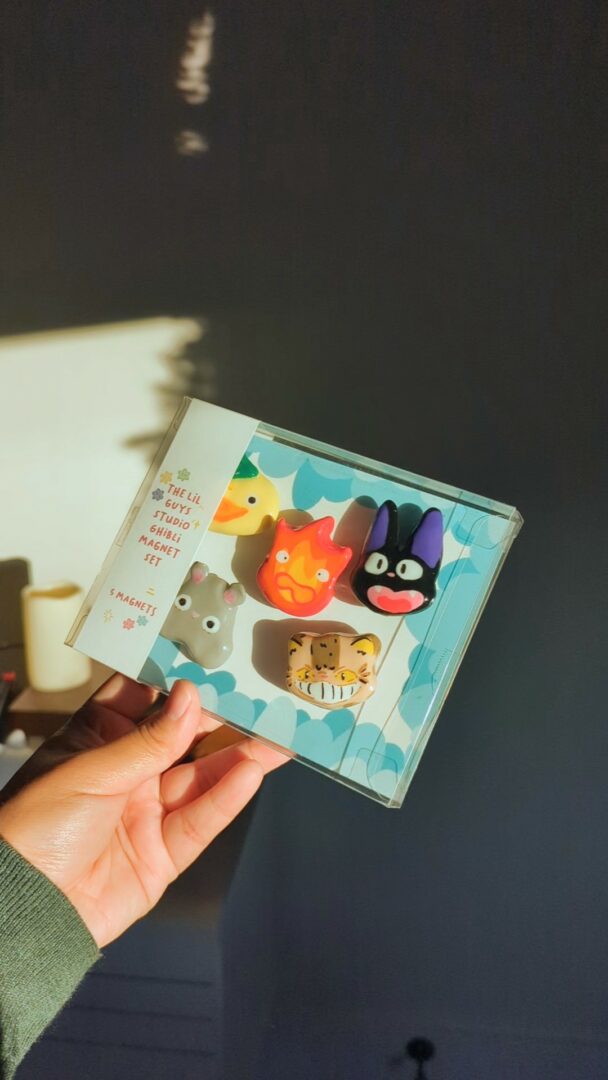
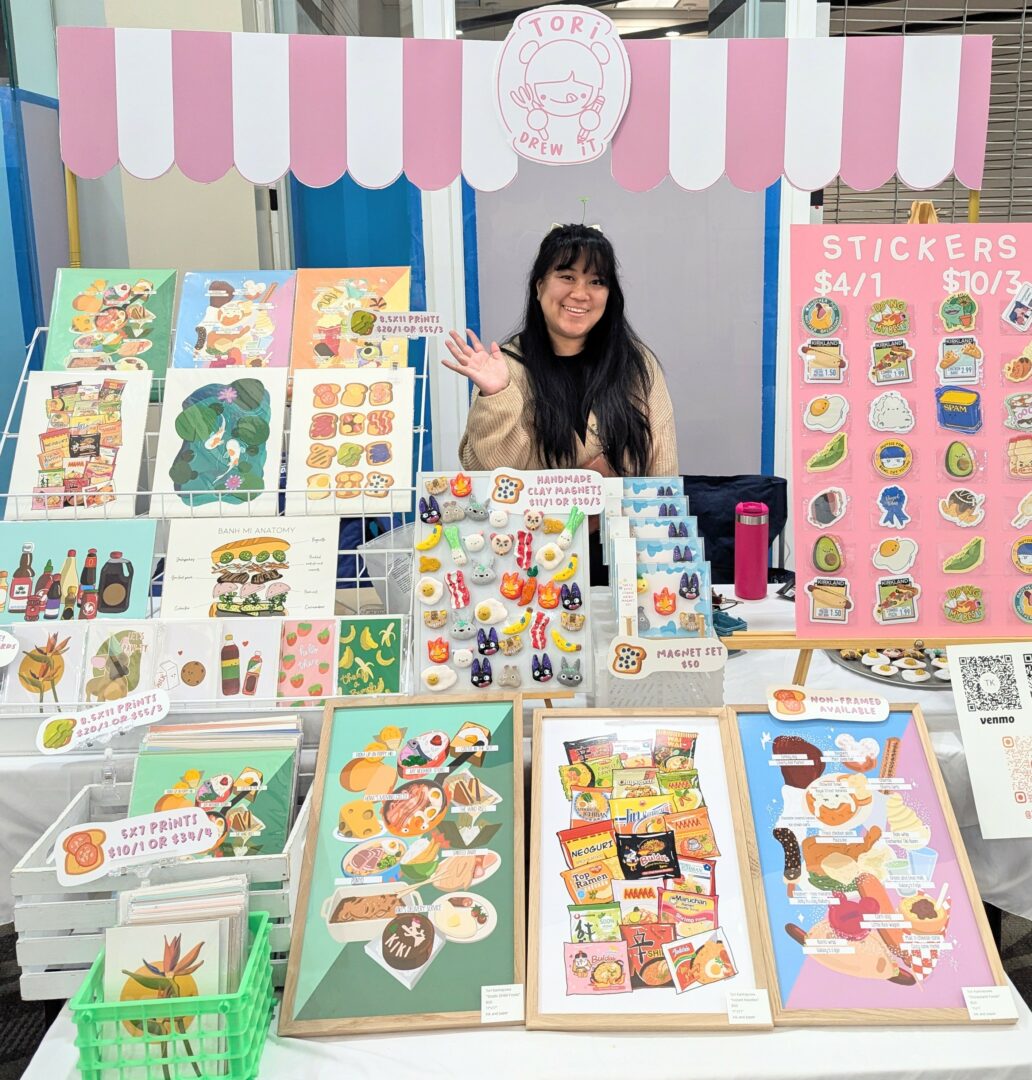
so if you or someone you know deserves recognition please let us know here.

